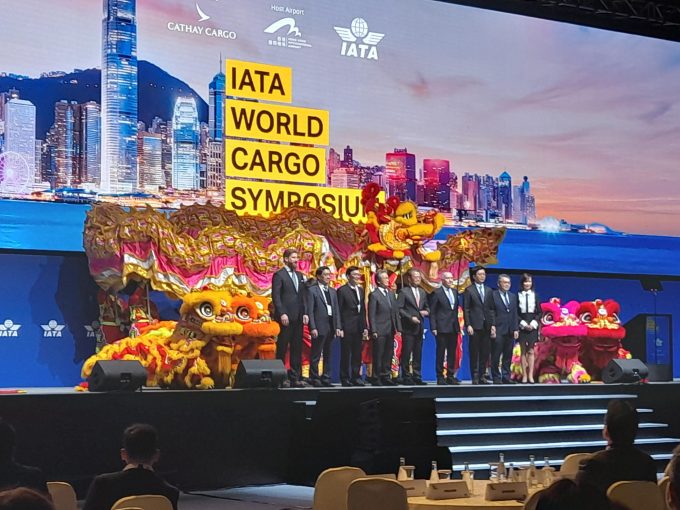Hong Kong drops out of world's top 10 busiest container ports
Hong Kong fell out of the world’s top 10 container ports last year, for the ...

IATA’s World Cargo Symposium (WCS 2024) kicked off this morning with a riot of colour in Hong Kong.
Local bigwigs – and IATA’s DG, Willie Walsh, and head of cargo, Brendan Sullivan – stood awkwardly on stage, circled by splendid lions in their traditional dance; and, after gloomy weather had covered the islands, the clouds finally lifted to reveal a sunlit cityscape.
It is the biggest gathering in air cargo in history, apparently, with some 1,900 registrations. Proof, according to Mr Walsh, (cornered by The Loadstar in the pre-event drinks), that IATA is fully focused on cargo. In fact, he told delegates, this is also IATA’s biggest-ever event.
“To have 1,900-plus people here demonstrates that this is an important industry, and it’s important to IATA,” said Mr Walsh. “And there is a lot more we are ready and capable to do.” (Not least, said one observer close to the association, to enjoy the high revenues from the event, priced at about $2,000)
But the event isn’t really about IATA. Hong Kong itself is a more prominent participant, as it comes out swinging, after its horrible Covid experience. Passenger travel is still only about 80% of 2019 levels, said Paul Chan, the special administrative region’s financial secretary.
“We are just getting going,” he said.
As you fly into the airport, that becomes apparent: major building works are under way, and not just for passengers and retail outlets (although they are, of course, being well-served). The three-runway system is due to complete this year, and Hong Kong is “rapidly deploying” intermodal options for exports from the mainland, while there are increased connections with “sister cities” in the Greater Bay Area.
“We are transforming from a city airport to an airport city,” said Mr Chan. “Our vision is just getting bigger.”
He said this year’s budget was devoted to connectivity, by expanding the aviation network and focusing on ‘belt and road’ countries, and strengthening ties with the mainland. The second budget priority is the green transition, he added.
Hong Kong may have lost some of its long-term residents, but it is full of confidence. It’s not competing with the mainland airports, but collaborating. It has embraced technology (a lack of labour has triggered innovations such as robots in restaurants), embraced mainland ties and yet has retained its east-west culture.
It looks to be increasingly relevant again to the world of logistics, and air cargo.
Comment on this article